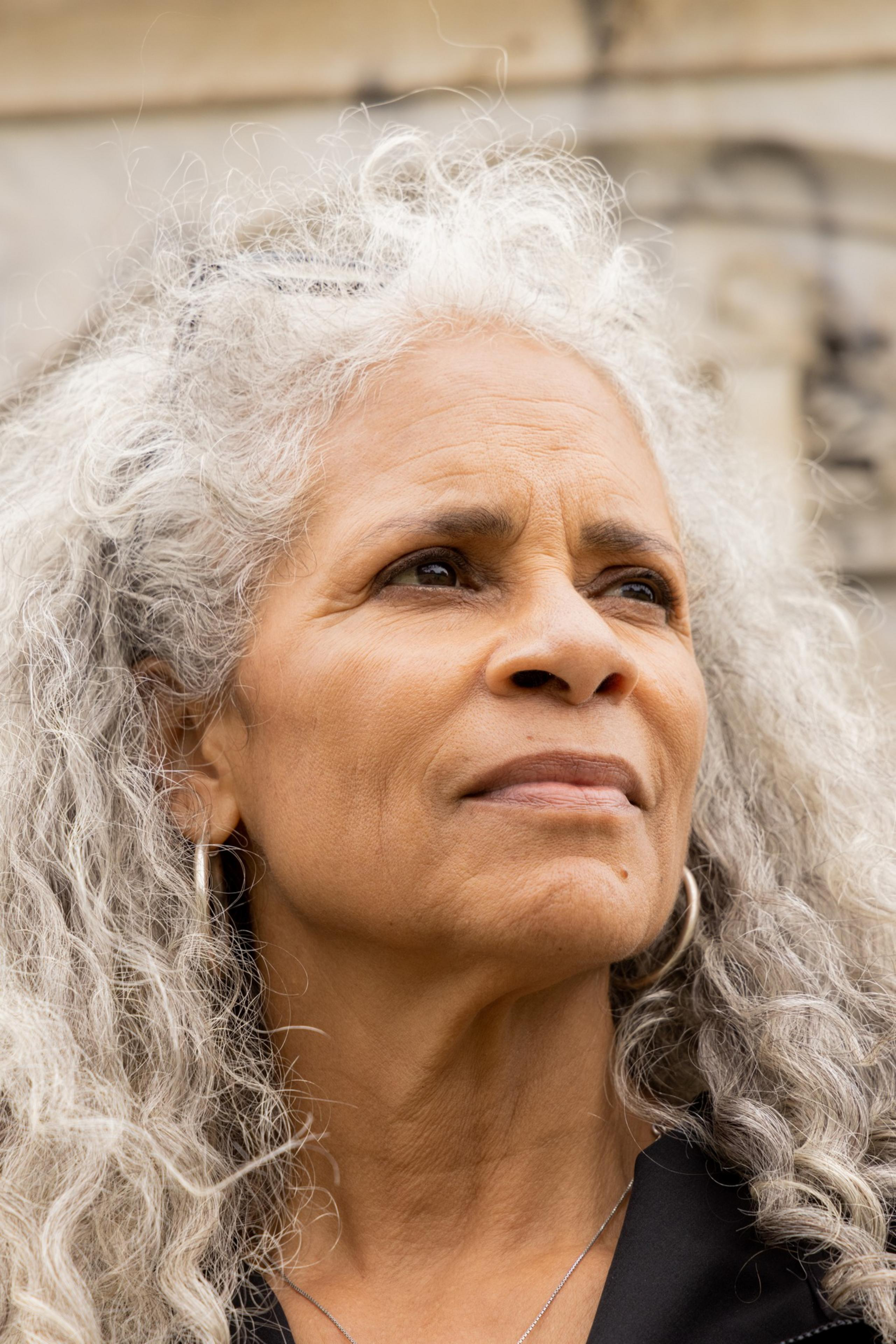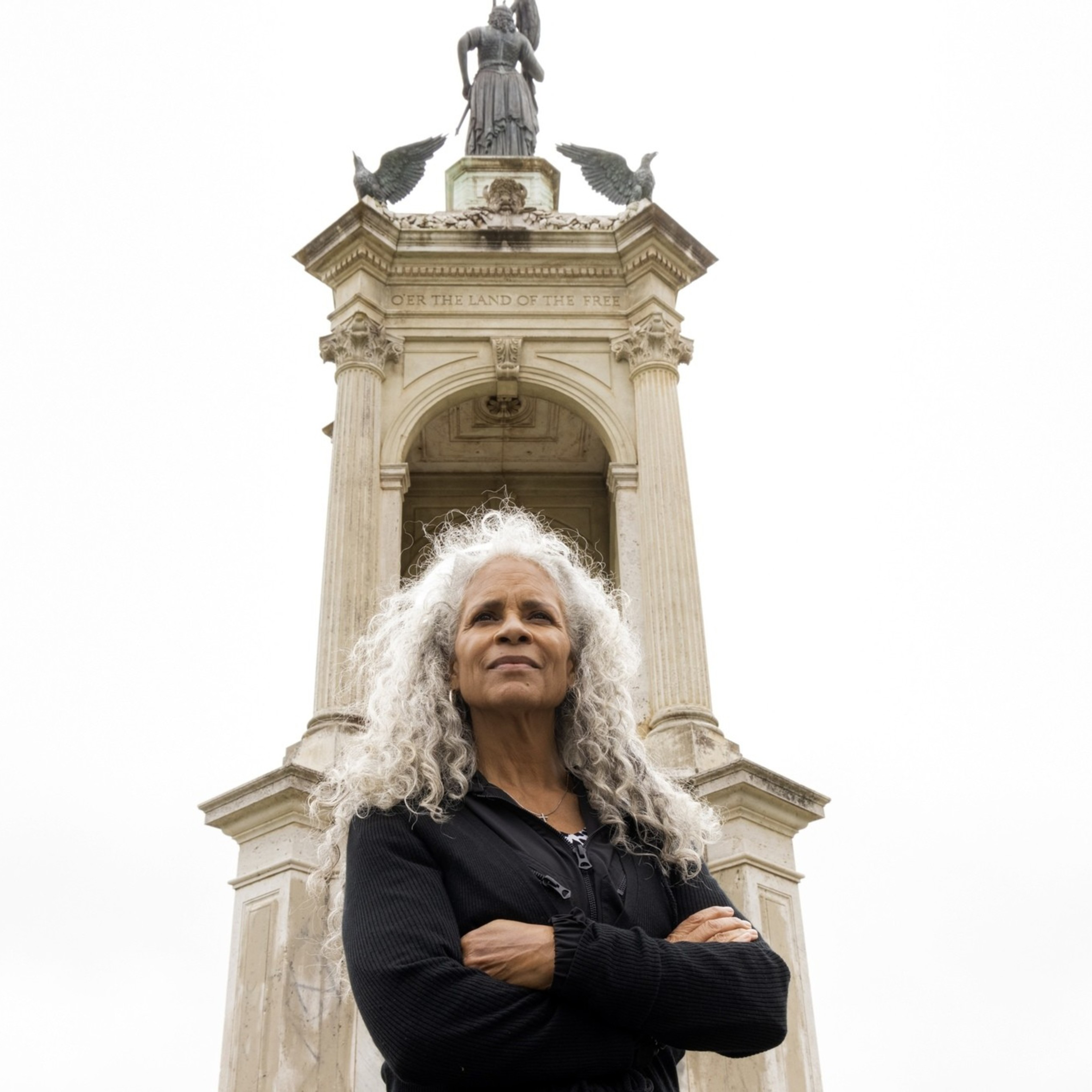For more than a century, a statue that has come to represent America’s racist history towered over a plaza in Golden Gate Park.
Protestors toppled it in 2020. But on Wednesday afternoon, attendees of a Juneteenth celebration said that simply removing the statue of Francis Scott Key, the slaveholding author of “The Star Spangled Banner,” was not enough.
“We need to surround it with 360 degrees of truth, the whole story of enslavement,” said Dana King, a Bay Area sculptor and well-known broadcast journalist.
In 2021, San Francisco commissioned King to create a temporary art installation to surround the pedestal where Key’s statue once stood. She crafted “Monumental Reckoning,” 350 sculptures representing the first African slaves brought to the United States.
The installation was taken down in February, but Wednesday’s celebration was meant to recreate it with Black women surrounding the statue’s base for a moment of silence.


Around 50 women participated, from a diverse crowd of roughly 100, in a ceremony that included speeches and performances of “Lift Ev’ry Voice” and “Go Down Moses.” Mayor London Breed did not attend the event as listed on the celebrations’ schedule. The Mayor’s Office said Breed did not commit to attending the event.
“Francis Scott Key ran a family business on our backs,” King said. “And he’s elevated in this nation as a hero.”
Key once referred to Africans in America as a “distinct and inferior race (opens in new tab).”
“I hate monuments and memorials that are permanent,” said Phil Ginsburg, general manager of the Recreation and Parks Department. “A monument fixes a society’s values for an eternity. Parks grow. People grow.”

Critics have also noted that a little-known third verse of the national anthem—which is still etched on the base of the statue that remains in the park—scorns and threatens slaves who sought their freedom.
“No refuge could save the hireling and slave / From the terror of flight or the gloom of the grave,” the verse reads.
Protestors toppled Key’s statue as part of a national reckoning of American racism spurred by the death of George Floyd in 2020.
“I used to play around this monument as a kid. But if I knew it said that, I would’ve played differently,” said attendee Phyllis Bowie, 64, referencing the verse on the statue’s base.
It was especially important to attend the celebration given recent incidents of racist graffiti around San Francisco, Bowie said.

King told the crowd that she wanted her art piece made permanent to remind passersby of racism in America, past and present.
Ginsburg, the parks department general manager, said he was open to a permanent version of King’s installation. He clarified that while he’s opposed to permanent statues that fix backward views, King’s work is art—which is different from a monument—and provides historical context.
“Francis Scott Key was a racist bastard,” Ginsburg said.
Correction: A previous version of this article stated Mayor London Breed was scheduled to attend the event but did not make it. The Mayor’s Office said Breed did not commit to attending the event.

